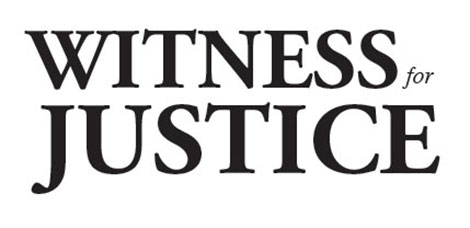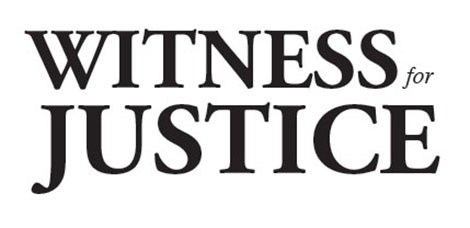Commentary: Shining a Light on Abuses Against Immigrants

Much of the debate around immigration in the last year has centered on high-level public policy and legal fights about issues like DACA, the border wall, or refugee bans. These are important stories, but they don’t give the full picture of what is happening in our country right now. Out of the spotlight our nation is engaging in an aggressive and sustained attack against immigrants, refugees, and asylum seekers. It’s horrible stuff, and I have been deeply troubled by how much of it seems to be going unnoticed.
Need some examples? On May 7 Attorney General Jeff Sessions announced that the U.S. will attempt to dissuade people from coming to our country by forcibly separating parents from their children at the border. Did you catch that? Parents fleeing conflict, poverty, hunger, and domestic violence will arrive at our border seeking refuge and instead they will have their child taken from them and they will be jailed. And as for that child? If they are lucky they will be placed with a family member, but more often they are placed in a shelter and held while their parent’s asylum claim is processed, which can take months.
And what happens to the children placed with sponsors by the Department of Health and Human Services? Representatives from HHS testified before the Senate last month that nearly 1,500 of them have been lost and are totally unaccounted for. It is hard to imagine an easier target for human traffickers and those who would abuse children.
In other news, the Department of Homeland Security recently submitted a draft proposal for a new rule on what is known as “public charge.” It would penalize people who are here legally for accessing social services by counting it against them when they apply for permanent residency. This has no impact on undocumented immigrants (who already cannot access public programs). Rather it will punish people like DACA recipients if they access WIC to feed their babies, or people here on work visas who, when paying their taxes, claim the Earned-Income Tax Credit. According to groups like the National WIC Association, the mere rumor of this impending change has instigated a public health crisis as fearful immigrant families are forced to choose between feeding their children and the long-term security of their family.
These are just a few examples of the violence we are inflicting on immigrant families as a nation. There are so many more.
These attacks are being carried out in our names, using our tax dollars. We have accepted cruelty towards our neighbors as a norm. And it has been easy to do, mostly because it goes unseen and unheard by many. It doesn’t have to be this way. If any of this information surprises you, I invite you to put energy into seeking it out. Read the news more carefully and refuse to be distracted from the reality of what is being done. Connect with groups in your community who are working with immigrant families. Show up and stand in solidarity when these attacks take place. Explore how you congregation can become an Immigrant Welcoming Church. Make a commitment to be a witness to these events, and then use what you know to challenge politicians and candidates running for office.
Terrible things are allowed to fester in the dark. We can help cast a light on what’s happening. And we can stand together and say that this is not right.
Jessie Palatucci is the Communications Strategist for the United Church of Christ.
View this and other columns on the UCC’s Witness for Justice page.
Donate to support Witness for Justice.
Click here to download the bulletin insert.
Related News
Celebrating Diversity, Equity, Inclusion, and Accessibility
In the beautiful diversity of humankind, we are invited to celebrate diversity, equity,...
Read MoreA Moment of Silence
The weekend news was alarming. Two students shot and killed with 9 injured at Brown University...
Read MoreIn hope-filled worship service, UCC and United Church of Canada celebrate full communion past and future
On Saturday, Dec. 13, many from the United Church of Christ (UCC) and the United Church of...
Read More


